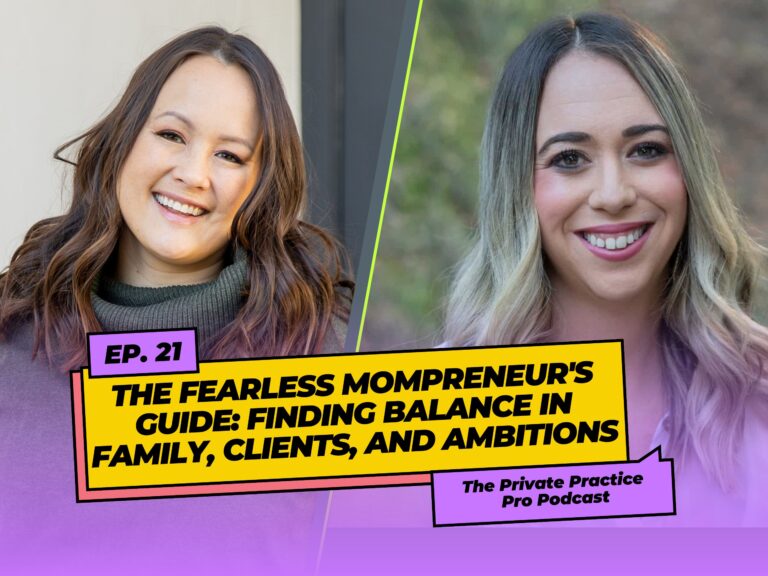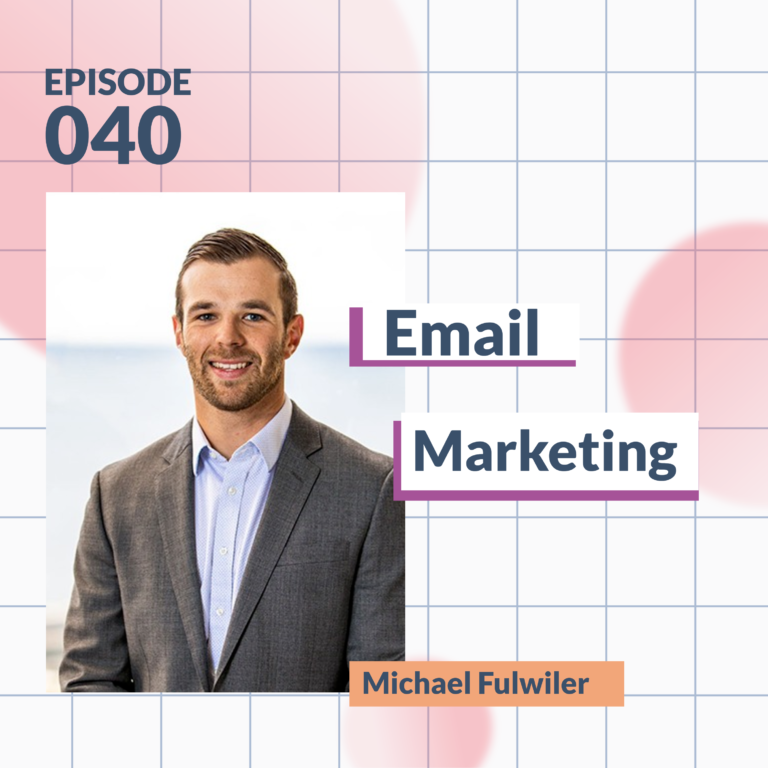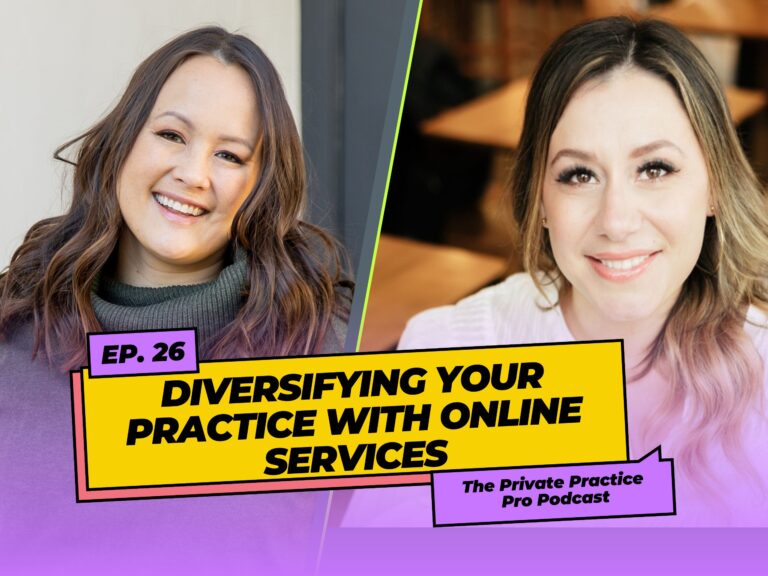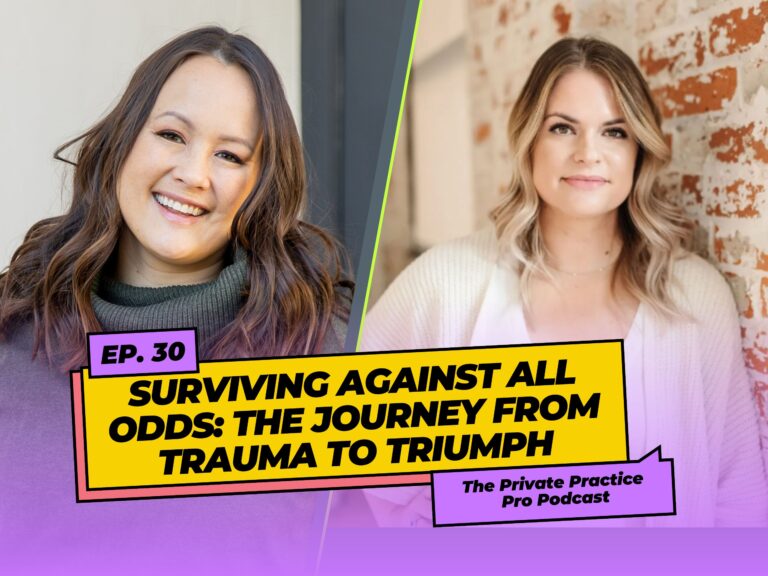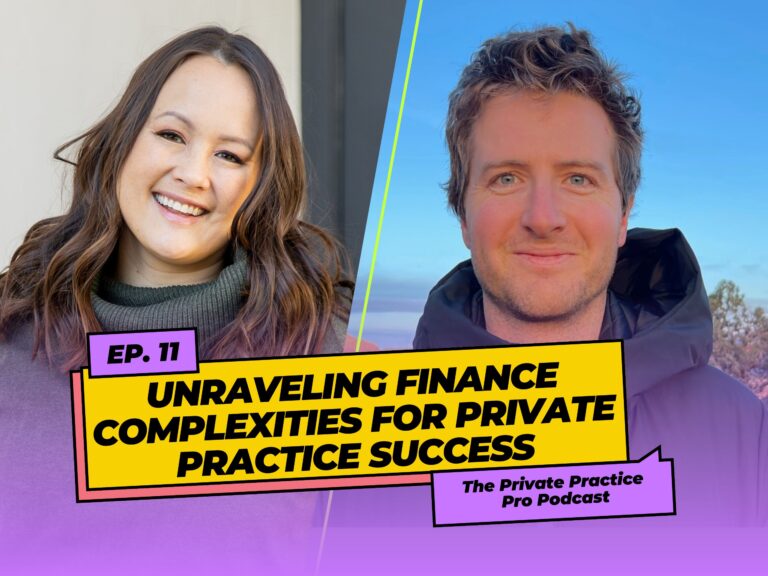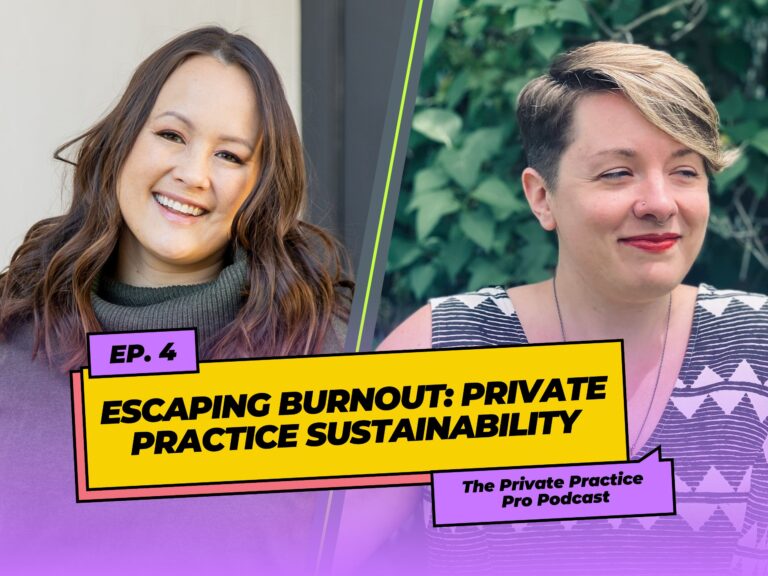Expert Tips for Therapists: Writing, Mental Health, and Career Development with Lindsay Gibson PsyD
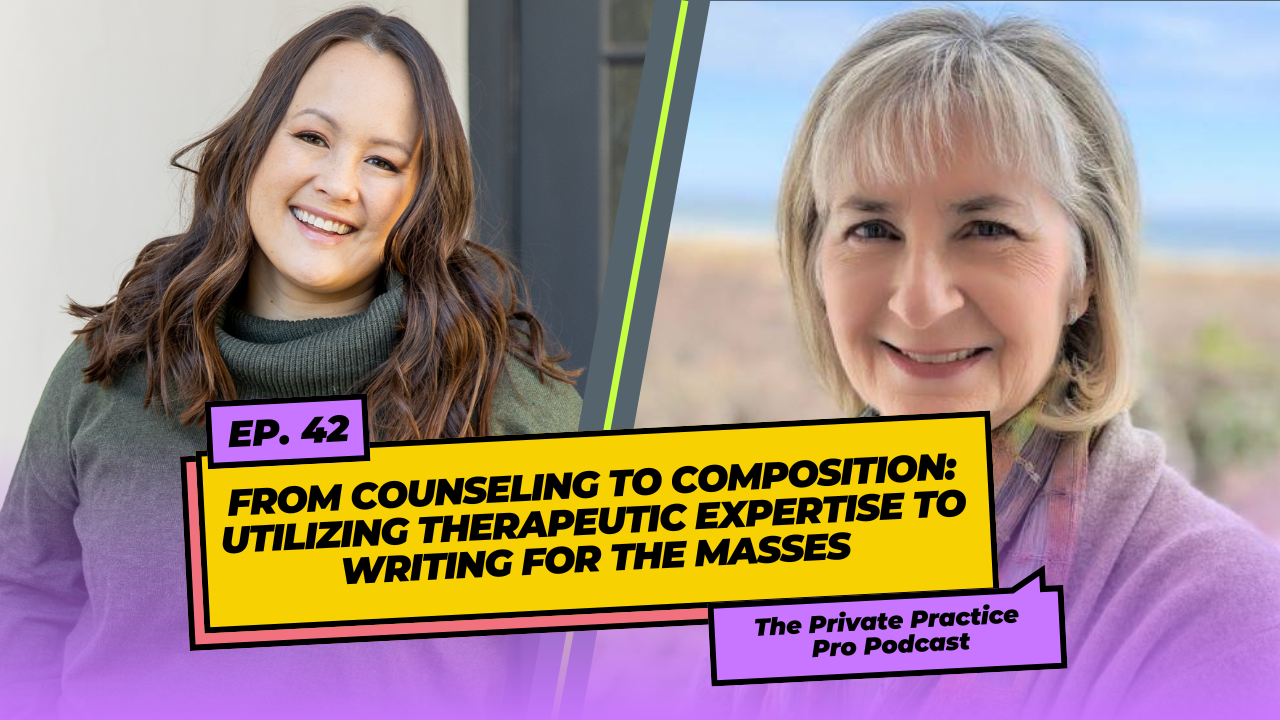
Recently I had the pleasure of discussing the intricacies of emotional immaturity with Lindsay Gibson PsyD, a clinical Psychologist and author dedicated to helping adult children of emotionally immature parents. Lindsay’s latest book, “Disentangling from Emotionally Immature People,” expands on this topic, offering therapist insights into various emotionally immature relationships and toxic relationships. She’s also creating resources for therapists, including a growth journal and a therapy book, to facilitate healing and self-discovery. These materials also serve as helpful private practice tools for therapists.
Lindsay shared her experience balancing writing with her therapy practice, detailing her journey from aspiring novelist to psychologist. We also discussed the increased focus on mental health and the resulting demand for resources to support well-being. This shift highlights the importance of marketing for therapists and the growing relevance of online marketing for therapists, especially when starting a private practice or building a private practice in today’s climate.
For those looking to enter the fields of therapy or writing, Lindsay advised embracing psychoeducation and trusting the creative process, starting with a “crappy first draft.” She stressed the importance of aligning your practice with your interests and energy level, a valuable reminder for those exploring how to start a private therapy practice. These insights are deeply relevant for anyone managing a practice and integrating tools such as EHR, email marketing, or strategic marketing efforts.
As we wrapped up, Lindsay highlighted her upcoming therapy mentorship program and the value of collaborative work environments. I also shared tips on managing fee adjustments in private practice, emphasizing clear communication and setting expectations. Effective patient communication and alignment with your mental health goals are key parts of sustaining a healthy therapy business model.
This episode is packed with advice for therapists and individuals on career development and private practice management. Lindsay’s insights, combined with my reflections, offer strategies for your professional journey in mental health. Remember the impact your work can have and continue to push boundaries in your field, whether in clinical psychology, marriage and family therapy, DBT (dialectical behavior therapy), or areas like trauma, attachment, grieving, and psychological education.
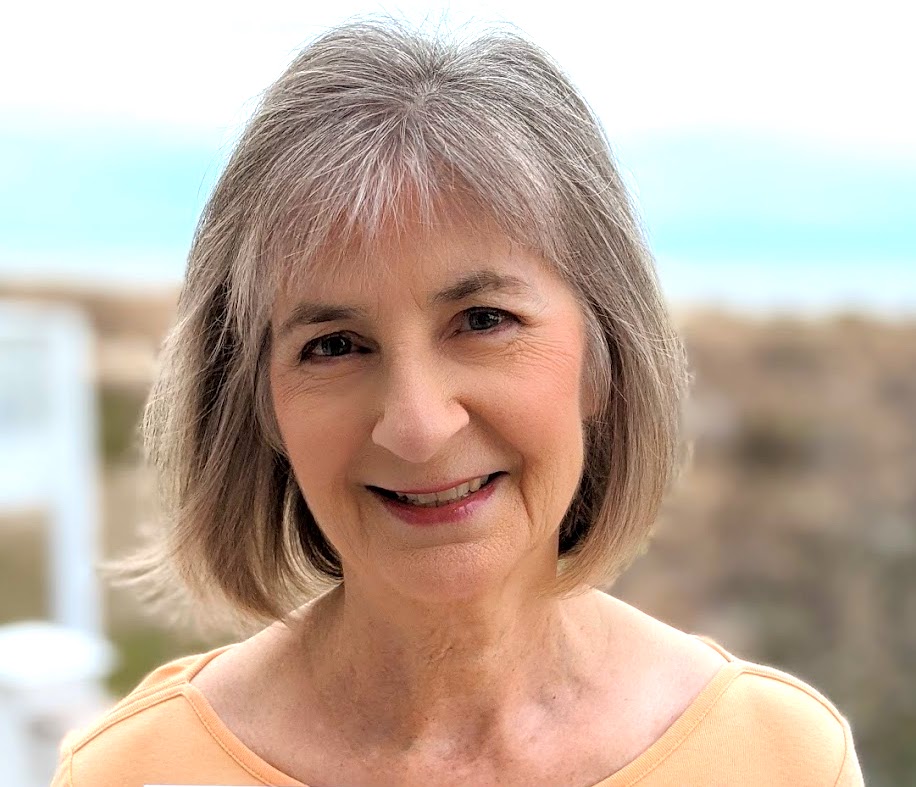
After obtaining two graduate degrees in clinical psychology – a Master’s degree from Central Michigan University, and a Doctorate of Psychology from the Virginia Consortium Program in Clinical Psychology – I became licensed as a clinical psychologist in the Commonwealth of Virginia. For many years I was also an Assistant Adjunct Professor for the College of William and Mary and Old Dominion University, teaching classes of doctoral students in the Virginia Consortium Program in Clinical Psychology. I have specialized in adult psychotherapy and personal growth counseling, as well as doing years of intensive personality and intellectual testing. In-depth psychodynamic training helped me understand people’s problems from a developmental perspective, leading to my livelong fascination with the striking differences between adults in their levels of psychological maturity.
Website: www.lindsaygibsonpsyd.com
When it comes to blending clinical practice with creative expression, few do it as clearly and purposefully as Lindsay Gibson, PsyD. She is a licensed clinical psychologist, bestselling author, and educator. Lindsay has devoted her career to helping adult children of emotionally immature parents. She also guides fellow therapists and clinicians navigating a changing mental health landscape.
In a recent podcast with Kelly Stevens of The Private Practice Pro, Lindsay shared her journey—from aspiring novelist to psychologist and author. Her story offers valuable insights for anyone exploring careers at the intersection of psychotherapy, writing, and private practice. This post expands on that conversation by highlighting takeaways on career growth, mental health trends, and creativity in clinical work.
Writing as a Form of Psychoeducation
Lindsay’s publishing journey didn’t start with a bestseller. It began with a strong desire to share psychological insights in an accessible way. With a background in English and a love of storytelling, she started writing about her clients—specifically adult children of emotionally immature parents. Her books, including Adult Children of Emotionally Immature Parents and Disentangling from Emotionally Immature People, are more than therapeutic tools. They are also powerful forms of psychoeducation. These works have reached broad audiences and filled a gap in mental health literature by naming and explaining patterns many experience but struggle to define.
Through her writing, Lindsay helps people identify gaslighting, emotional neglect, and toxic relationships. These issues often stem from early attachment wounds and trauma. Her work shows how creative expression can align with therapy goals and offer healing to the public.
Lindsay encourages therapists to write with a focus on psychoeducation. She advises them to use accessible language while sharing clinically valuable insights. This approach broadens a therapist’s influence and helps make mental health care more approachable. It also plays a key role in reducing stigma.
Balancing Clinical Work and Creativity
Lindsay still sees patients in her practice, though she now maintains a smaller caseload. This gives her time for writing and mentoring. She structures her week based on energy and strengths. Mornings are for writing and editing, while afternoons are for sessions or admin tasks. Her routine reflects a larger principle she teaches: shape your career to suit your life. For clinicians feeling burnout or misaligned, Lindsay’s example is a reminder that success doesn’t require overextending. It requires clarity and boundaries.
She also stresses the value of finding a niche. Her own focus on emotionally immature parent-child relationships helped her connect with a specific client group. It also gave her material for writing and public education.
Therapists can benefit from choosing a niche that reflects both personal values and clinical strengths. Lindsay’s work shows how niche expertise—like emotional immaturity—can create depth in practice and broader outreach opportunities.
The Business of Private Practice
Lindsay and Kelly discussed how the pandemic changed therapy. More professionals have moved into solo practice, increasing the need for good marketing, strong business systems, and healthy boundaries. Therapy is now more entrepreneurial. Clinicians must think like business owners in addition to being skilled helpers.
For those building a practice, Lindsay recommends using tools like:
- EHR systems for secure documentation
- Email marketing to stay connected with clients and readers
- Targeted online marketing to attract ideal clients
- Facebook and social platforms for professional presence
Because digital content is now a vital part of practice growth, clinicians should act as both educators and entrepreneurs. Whether it’s launching a newsletter, creating guides, or speaking publicly, Lindsay believes therapists should step beyond the therapy room.
Starting Where You Are: Advice for New Therapists
If you’re wondering how to start a private practice, Lindsay offers a step-by-step path:
- Get clear on your clinical identity—what issues do you treat best?
- Use strategic marketing to reach your ideal clients.
- Don’t fear niching down—it boosts credibility and trust.
- Embrace tools like online scheduling and email marketing.
- Match your goals with your energy. Don’t sacrifice health for growth.
She also spoke about the emotional challenges of running a business. Many therapists feel guilt over fee changes or hesitate to make business decisions out of fear. But Lindsay emphasizes that being clear and respectful in your policies supports both financial stability and emotional health.
Therapists as Writers: A Growing Field
Lindsay represents a growing number of therapists using books, blogs, podcasts, and talks to educate the public. This trend is helping reduce stigma while expanding therapists’ reach. Writing doesn’t have to start with a book. She encourages starting small—with notes, session reflections (safely anonymized), or blog posts.
She also champions the “crappy first draft” mindset. Getting your ideas down matters more than writing something perfect. Clarity and structure will follow as you revise.
Building and Maintaining Visibility
Whether discussing DBT, grief, marriage therapy, or burnout, consistency is crucial. Lindsay uses both traditional publishing and modern platforms to share her voice. She connects with her audience through Facebook, email newsletters, and events. Her approach shows therapists can build visibility without sacrificing authenticity or ethics. She uses private practice marketing tools to amplify her message effectively.
Career Growth through Mentorship and Education
Lindsay continues to mentor new clinicians. She draws on her time as a university professor and her long clinical career. Her upcoming mentorship program aims to help therapists develop both clinical and business clarity. She believes in collaboration and community over competition.
New therapists, she says, need both formal education and real-world skills. Topics like pricing, burnout, and building a practice aren’t always taught in school. Her mentorship includes mindfulness, flexibility, and openness to new strategies. These traits are vital for therapists adjusting to evolving client needs.
In her dual role as therapist and author, Lindsay Gibson, PsyD, represents a powerful blend of creativity and clinical knowledge. Her commitment to education, visibility, and mentorship offers valuable guidance for therapists adapting to change. Whether you’re launching your career or expanding your reach, Lindsay’s story is a reminder of the power of clarity, boundaries, and aligning your work with your energy.

